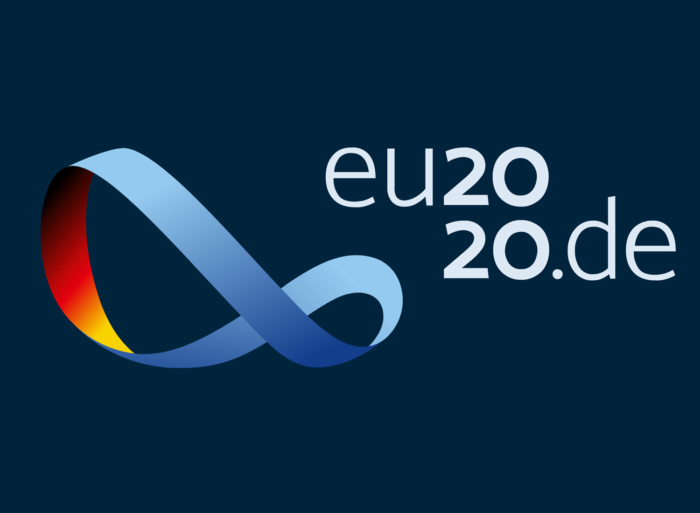
Today, on 1 July 2020, Germany assumes the rotating Presidency of the Council of the European Union. For six months, the German Presidency will streamline the political priorities of the Council, prepare and preside over Council meeting and represent the EU at the international level. With the coronavirus representing a significant challenge for the EU, the German Council Presidency will have a historical responsibility. The country forms a trio with Portugal and Slovenia for the period 1 July 2020 to 31 December 2021.
Composed of government ministers from each EU country, the EU Council represents the voices of EU member governments. As such, it is among the most important and influential EU bodies. Together with the European Parliament, the Council is the main decision-making body of the EU, which scrutinises and adopts new laws based on the proposals from the European Commission. It is also responsible for the EU’s common foreign and security policy, the annual EU budget and agreements between the EU and other countries and international organisations.
The Presidency of the Council of the EU is a huge responsibility for the nation holding the Presidency. From an administrative perspective, the German Presidency will be responsible for preparing and chairing up to 1,500 meetings and overseeing the work in about 200 working groups and committees. Politically speaking, the Presidency is pressured to deliver a coordinated response to the coronavirus and achieve a comprehensive agreement in the Brexit negotiations.
The focus areas of Germany’s Presidency of the Council of the EU include:
COVID-19
The management of the pandemic is at the heart of the German programme. In line with the EU’s green recovery strategy, Germany’s top priority will be on controlling the pandemic and getting Europe’s societies and economies back to full functionality.
Multiannual Financial Framework 2021-2027
To support the recovery, a key task for Germany will be to reach agreement on the adjusted Multiannual Financial Framework.
Future Relationship between the EU and the United Kingdom
The transitional period following the withdrawal of the United Kingdom will expire on 31 December 2020, and so the German presidency will play a key role in brokering a comprehensive partnership agreement with the United Kingdom.
Digital Transformation
Germany seeks to foster the digital transformation of Europe, in particular in the areas for digital progress are education, research, finance and health.
A strong Europe in the world
With a focus on Africa and relations with China, Germany wants Europe to take more global responsibility and strengthen its role in the world.
You can access the detailed Presidency program here
If you would like to learn more about the German Council Presidency and stay informed about its work and priorities, we highly recommend following:
- German Presidency of the Council: @EU2020DE
- COREPER I Spokesperson, Susanne Körber: @SKoerber_EU
- COREPER II Spokesperson, Sebastian Fischer: @SFischer_EU
- German Presidency of the Council Press, Lea Pfefferle: @LPfefferle_EU
- Information on the parliamentary dimension of the German Presidency: @parleu2020de
- Heiko Maas, German Foreign Minister: @HeikoMaas
- Miguel Berger, German Secretary of State, Federal Foreign Office: @MiguelBergerAA
You can download a PDF version of this Presidency of the Council of the European Union briefing here GermanyCouncilPresidency